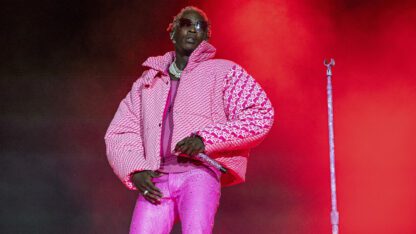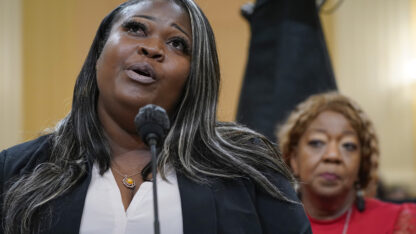Quidditch is getting ditched. The sport started growing beyond the Harry Potter books years ago, when college students first translated it into a real-world game. But now two large leagues plan to drop the famous name, citing author J.K. Rowling’s “anti-trans positions.”
A new name hasn’t been chosen yet. Both U.S. Quidditch and Major League Quidditch say they’ll use a series of surveys in the next few months to reach a decision.
The two leagues put out a joint statement this week announcing the looming name change.
“For the last year or so, both leagues have been quietly collecting research to prepare for the move and been in extensive discussions with each other and trademark lawyers regarding how we can work together to make the name change as seamless as possible,” MLQ Commissioner Amanda Dallas said in the statement.
Removing the quidditch name could also open up opportunities like sponsorships and broadcast deals that aren’t currently feasible because of the trademark Warner Bros. holds on “quidditch.” The leagues hope the change will also bring more expansion opportunities.
“I believe quidditch is at a turning point. We can continue the status quo and stay relatively small, or we can make big moves and really propel this sport forward into its next phase,” USQ Executive Director Mary Kimball said. “Renaming the sport opens up so many more revenue opportunities for both organizations, which is crucial to expansion.”
While growing the sport and its revenue are big factors in the name change, the leagues say they want to move away from any association the sport has with Rowling.
In recent years, Rowling has made comments that many saw as transphobic and anti-trans. In 2020, she came under heavy criticism after tweeting a link to an article about access to menstrual hygiene products during the pandemic. The article referenced “people who menstruate” – a framing Rowling seemed to take issue with because it did not refer to “women.”
” ‘People who menstruate.’ I’m sure there used to be a word for those people. Someone help me out. Wumben? Wimpund? Woomud?” Rowling tweeted.
The author elaborated on her views, via Twitter and on her own website.
After Rowling’s comments, many of the movie franchise’s biggest stars made statements in support of trans people, including Daniel Radcliffe, Emma Watson and Rupert Grint.
The leagues say Rowling’s controversial opinions about trans people are not welcome in their ranks.
“Our sport has developed a reputation as one of the most progressive sports in the world on gender equality and inclusivity, in part thanks to its gender maximum rule, which stipulates that a team may not have more than four players of the same gender on the field at a time,” the leagues said. “Both organizations feel it is imperative to live up to this reputation in all aspects of their operations, and believe this move is a step in that direction.”
Copyright 2021 NPR. To see more, visit https://www.npr.org.
9(MDAxODM0MDY4MDEyMTY4NDA3MzI3YjkzMw004))

9(MDAxODM0MDY4MDEyMTY4NDA3MzI3YjkzMw004))









